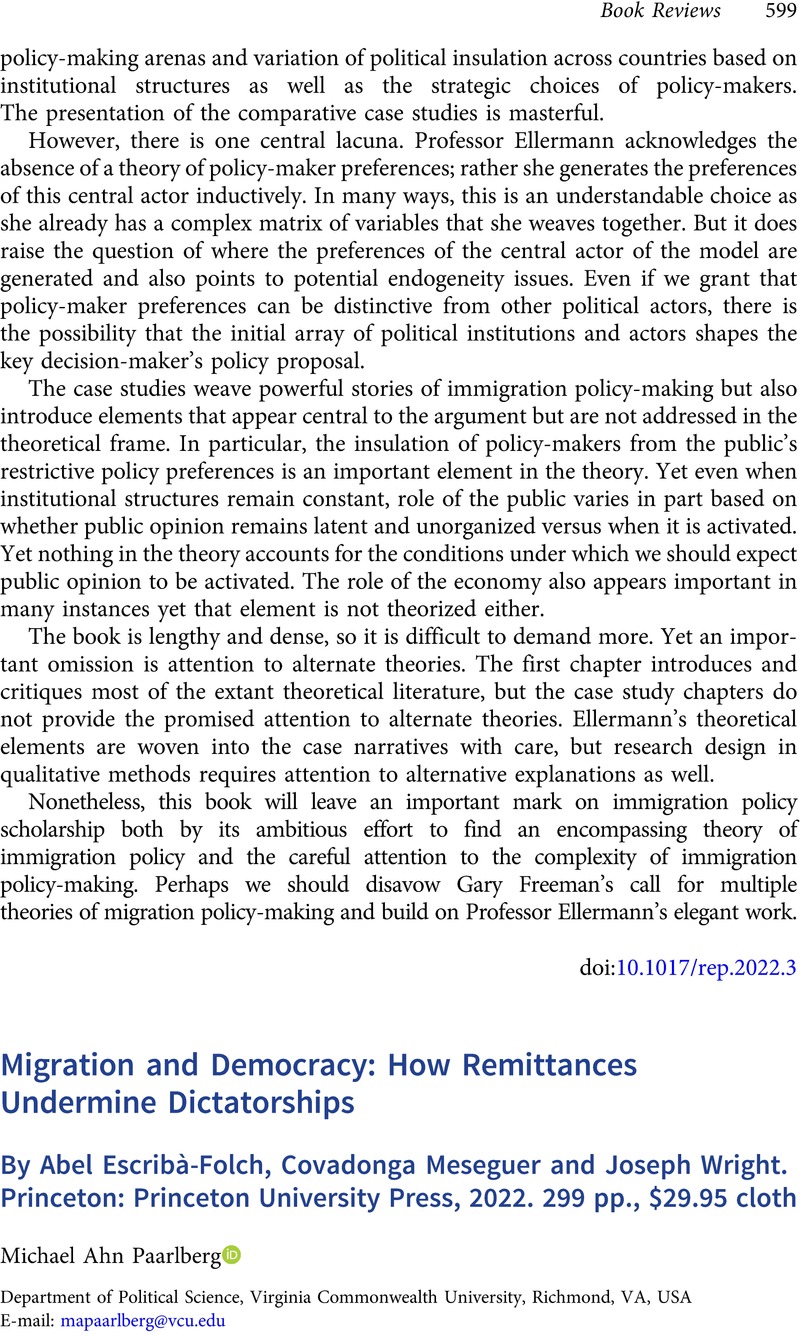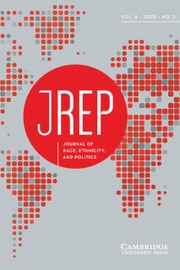No CrossRef data available.
Article contents
Migration and Democracy: How Remittances Undermine Dictatorships By Abel Escribà-Folch, Covadonga Meseguer and Joseph Wright. Princeton: Princeton University Press, 2022. 299 pp., $29.95 cloth
Review products
Migration and Democracy: How Remittances Undermine Dictatorships By Abel Escribà-Folch, Covadonga Meseguer and Joseph Wright. Princeton: Princeton University Press, 2022. 299 pp., $29.95 cloth
Published online by Cambridge University Press: 26 April 2022
Abstract
An abstract is not available for this content so a preview has been provided. Please use the Get access link above for information on how to access this content.

- Type
- Book Review
- Information
- Copyright
- © The Author(s), 2022. Published by Cambridge University Press on behalf of The Race, Ethnicity, and Politics Section of the American Political Science Association
References
Adida, CL and Girod, DM (2011) Do migrants improve their hometowns? Remittances and access to public services in Mexico, 1995–2000. Comparative Political Studies 44, 3–27.10.1177/0010414010381073CrossRefGoogle Scholar
Hirschman, AO (1970) Exit, Voice, and Loyalty: Responses to Decline in Firms, Organizations, and States (Vol. 25). Harvard University Press.Google Scholar
Krawatzek, F and Müller-Funk, L (2020) Two centuries of flows between ‘here’ and ‘there’: Political remittances and their transformative potential. Journal of Ethnic and Migration Studies 46, 1003–1024.10.1080/1369183X.2018.1554282CrossRefGoogle Scholar
Levitt, P (1998) Social remittances: Migration driven local-level forms of cultural diffusion. International Migration Review 32, 926–948.10.1177/019791839803200404CrossRefGoogle ScholarPubMed
Pérez-Armendáriz, C and Crow, D (2010) Do migrants remit democracy? International migration, political beliefs, and behavior in Mexico. Comparative Political Studies 43, 119–148.10.1177/0010414009331733CrossRefGoogle Scholar
Wellman, EI (2021) Emigrant inclusion in home country elections: Theory and evidence from sub-Saharan Africa. American Political Science Review 115, 82–96.10.1017/S0003055420000866CrossRefGoogle Scholar


